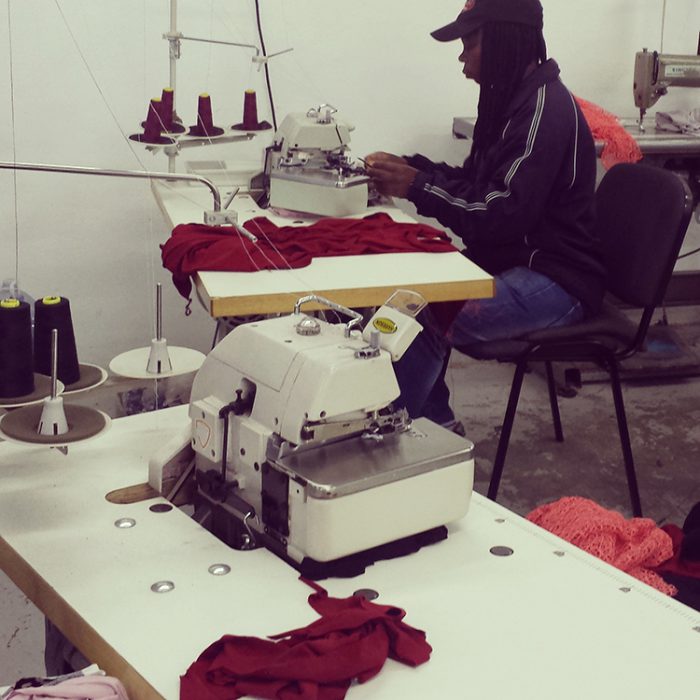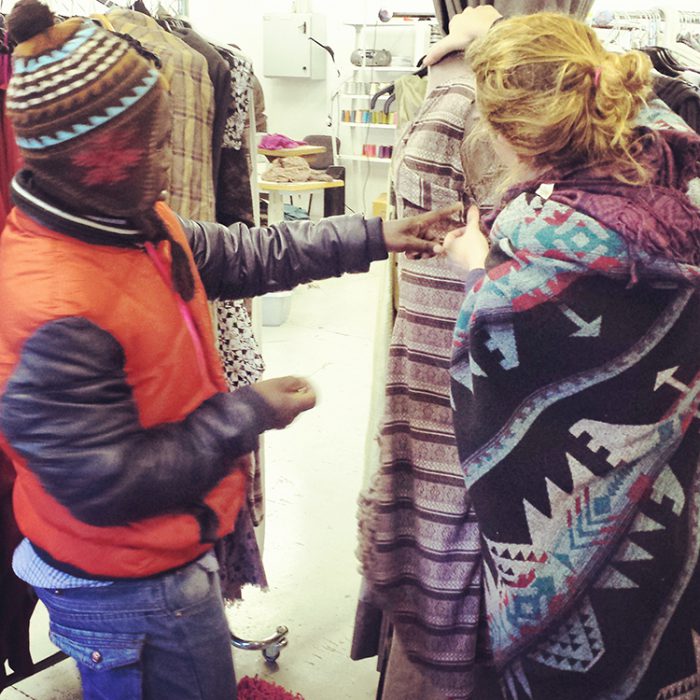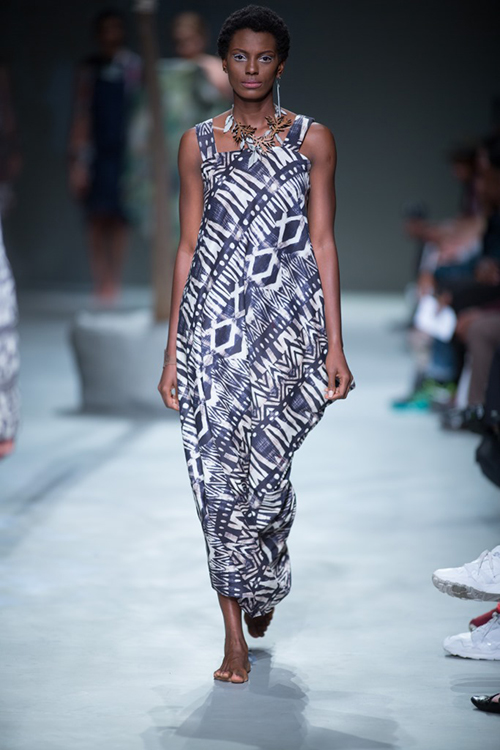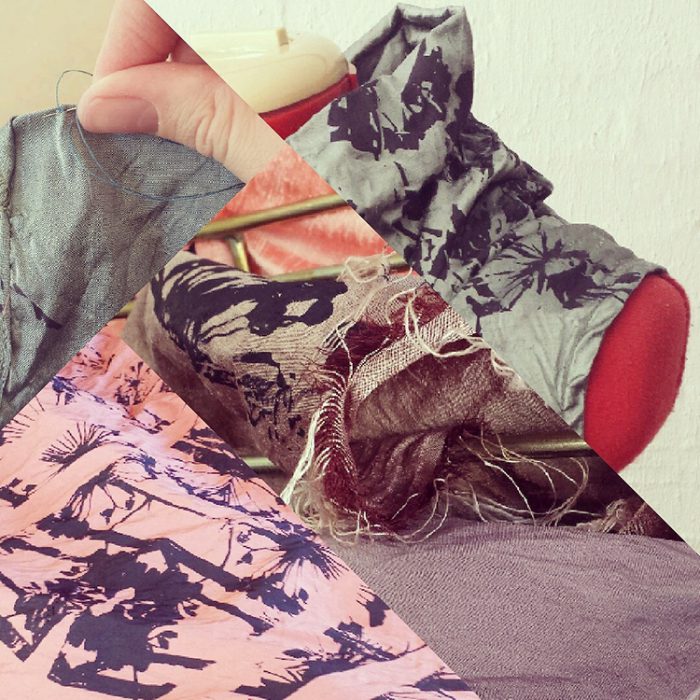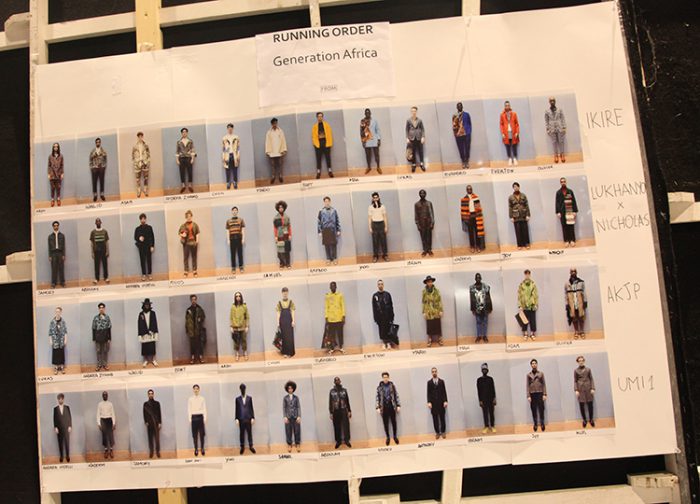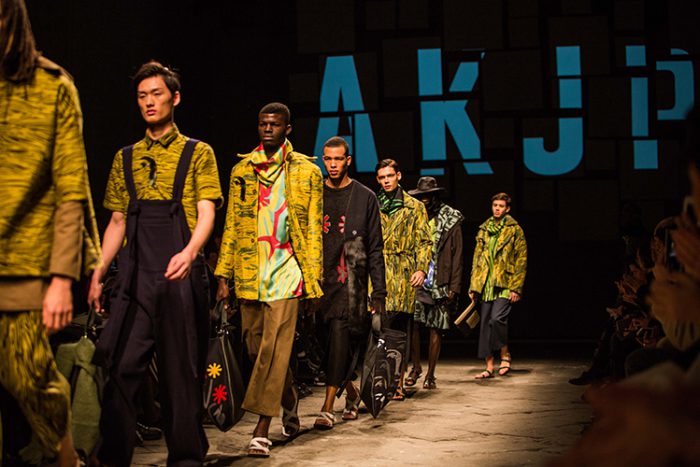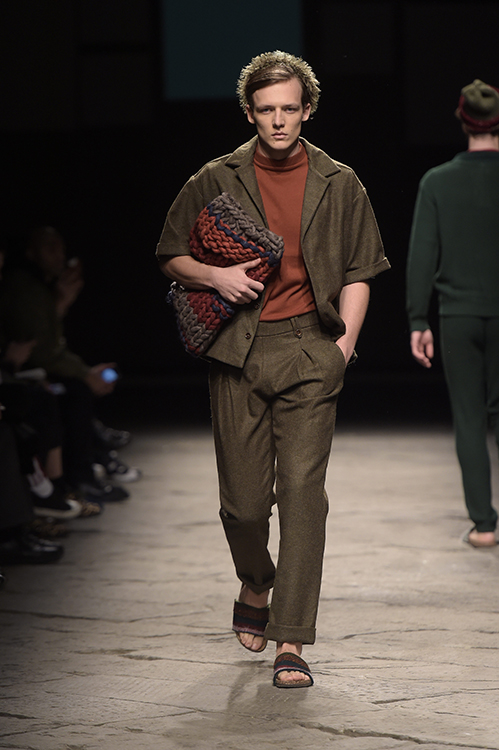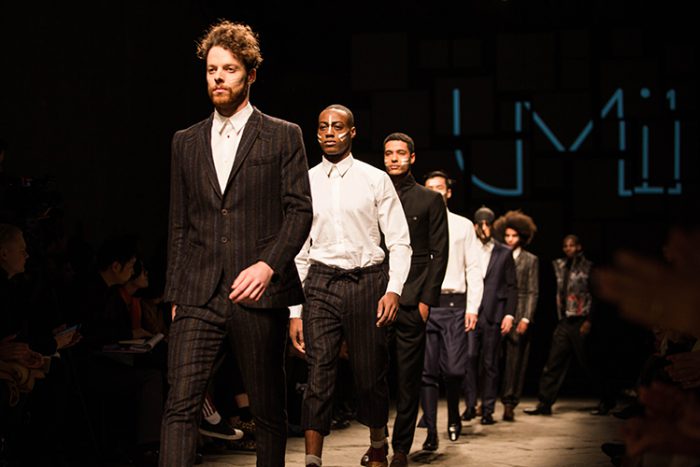Notes on the health of the fashion industry, and some ideas of what I would like to highlight in my next collection…
One of the key elements of the creation process is the talented machinists and other crafters that help to construct the garments we design. It is a symbiotic partnership where one cannot function without the other. The exploitation of workers in the garment industry has been a hot topic in social media generating massive momentum with the hashtags #whomademyclothes and #fashrev along with the proudly South African #lovezabuyza. Documentaries made after the Rana Plaza collapse, such as The True Cost have also highlighted the plight of workers in the garment manufacturing industry
In a recently published paper concerning transparency in the fashion industry titled It’s Time for a Fashion Revolution the following interesting points were made.
– The current fashion business model is broken and operates in a fundamentally unsustainable way…we cannot keep chasing the cheapest labour and natural resources. Eventually, they will run out.
– 36 million people are working as modern day slaves, many of them producing clothing for western brands.
– They touch on the topic of paying a living wage rather than the bare minimum wage which in many eastern countries covers only 60% of the cost of living in a slum. Waste is also an intricate part of how the fashion industry currently operates with huge amounts of fabric and clothing ending up in landfills. Clothing donated to charities in Western countries end up being dumped on or sold in third world countries killing any chance of developing sustainable fashion industries in these countries.
WE ARE THE FASHION REVOLUTION
Our main focus is to change the narrative surrounding fashion; to transform it into a force for good. We believe that it is everybody’s responsibility; not just the fashion designers, buyers and big retailer, but also the end consumer, who allows this state of affairs to continue by purchasing the “poly-blend T-shirts and runway rip offs”
Highlighting WHERE and by WHOM clothing is made is an integral part of the Fashion revolution’s mantra, telling the stories behind the clothing. Transparently is key to insure that consumers don’t unknowingly aid and abet dubious practices “and contribute to a future that is bad for people and the planet”
WE BELIEVE IN A FASHION INDUSTRY THAT VALUES PEOPLE, THE ENVIRONMENT, CREATIVITY AND PROFIT IN EQUAL MEASURE
As a fairly well established designer in the South African fashion industry I feel that it is my duty and privilege to help spread the message. I have always believed in creating sustainable jobs especially in the labour intensive clothing industry and thus I’ve kind of approached the topic back to front.
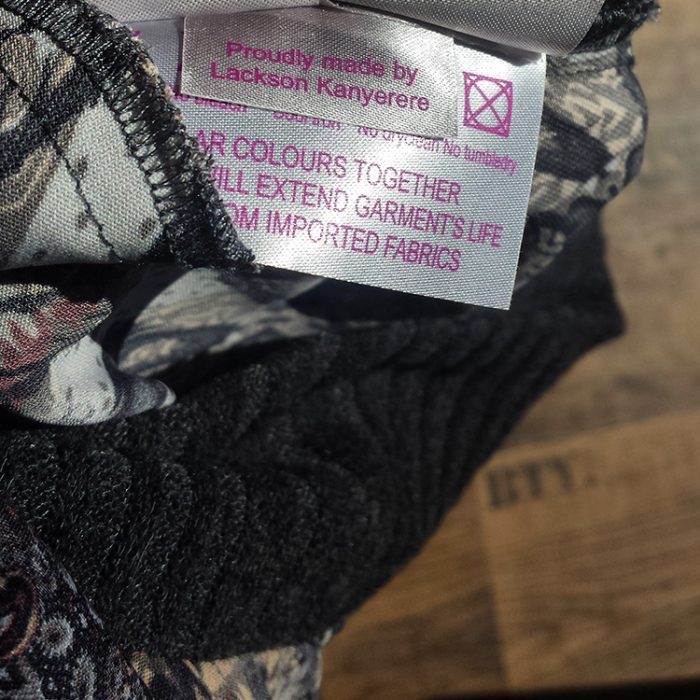
In a recent “Eureka!” moment I realised that being an ethical designer does not end with paying a fair wage, crediting all input in design and well as production and insuring that as little as possible waste that we generate ends up in landfills. I need to tell people; consumers, fellow designers and other members of this huge industry, what I’m up to.
The main reasoning behind it is so that my loyal and amazing customers know what they are buying and why they are paying more for my clothing than mass produced runway-ripoffs. I want them to share in the feel good glow; contributing, in whatever manner, to creating more a sustainable industry. I want this ethos to rub off on my fellow designers, most of who are already ticking all the #fashrev boxes, and inspire them to talk about what they are doing.
By adding more voices to the movement and using any available platform to broadcast it the Fashion Revolution will happen. We have committed 30 years of fast fashion atrocities and created an unsustainable monstrous industry that generates trillions of dollars annually yet fails to honour its most key member.
AFRICAN HANDS CREATING CLOTHING FOR AFRICAN BODIES
South Africa sits at the tip of a culturally rich continent with access to a huge pool of talented craftsmen and -women. Before the rise of the industrial Far East we used to boast many successful fabric mills and production houses. Our bodies do not fit the Chinese, European or American mould and we have been forced to feel shame rather than celebrate being healthy human beings. Our sense of style and ethnic signatures has been appropriated the world over, yet we still flock to support cheap, badly made Western fast fashion.
We need to change our own narrative and stop allowing ourselves to be exploited. We have the power to unite the local fashion industry and ignite a revolution to radically change the way we think about clothing.
Yesterday at Pitti Immagine Uomo 89 in Florence, the Fondazione Pitti Discovery and ITC Ethical Fashion Initiative held a runway show “Generation Africa”. With a focus on fashion from Africa, this unique platform promoted young and talented fashion designers from the continent, and showed the energy of today’s African creative scene.
“Generation Africa is the chance to open a new window on one of today‘s most creative scenes” says Lapo Cianchi, head of Special Projects at Pitti Immagine
The show featured four brands already known on the international market that present different facets of the African continent and who focus on manufacturing in their home countries. AKJP, Ikiré Jones, Lukhanyo Mdinigi x Nicholas Coutts and U.Mi-1 all presented their Autumn/Winter 2016-17 men’s collections.
“We continue our collaboration with Pitti Immagine to showcase the creativity of Africa. We want to convey a different image of the continent, one of innovation and diversity with a strong youthful energy for positive change. Pitti Uomo is the perfect platform for the designers to express their vision and show that Africa means serious business.” says Simone Cipriani, Head and Founder of the ITC Ethical Fashion Initiative.
For Generation Africa, the Ethical Fashion Initiative partnered with the Italian association, Lai-momo which welcomes asylum-seekers in Italy and promotes cross-cultural exchanges between Africa and Europe with the aim of reducing stereotypes and preconceptions. As part of a joint effort by EFI, Lai-momo and Pitti Immagine to raise awareness on migration, three asylum seekers modelled for the show, giving them an opportunity to earn a wage and be part of an empowering international event celebrating creativity from Africa. Continuously striving to improve diversity in the fashion industry, the Ethical Fashion Initiative aims to demonstrate fashion’s capacity to support the betterment of society.
The Ethical Fashion Initiative is a flagship programme of the International Trade Centre, a joint agency of the United Nations and the World Trade Organization. The Ethical Fashion Initiative links the world’s top fashion talents to marginalised artisans – the majority of them women – in East and West Africa, Haiti and the West Bank. The Initiative has been connecting artisans to the global fashion supply chain since 2009. The Ethical Fashion Initiative also works with the rising generation of fashion talent from Africa, encouraging the forging of fulfilling creative collaborations with artisans on the continent. Under its slogan, “Not Charity, Just Work” the Ethical Fashion Initiative advocates a fairer global fashion industry.
The four participating brands were:
AKJP // Keith Henning & Jody Paulsen, South Africa
AKJP (Adriaan Kuiters + Jody Paulsen) is a menswear and womenswear brand founded by South African designer duo, Keith Henning and Jody Paulsen. AKJP‘s signature is its artful contemporary twist on classic and utilitarian menswear. The development of strong prints and sports-inspired motifs for each collection has become core to AKJP. AKJP uses layering, boxy silhouettes and asymmetrical detailing as a signature styling feature. AKJP has been recognised as one of South Africa’s most innovative brands, bringing contemporary and cool to the South African fashion landscape. In 2015, AKJP was one of the finalists at Vogue Italia’s Who Is On Next? Dubai.
IKIRÉ JONES // Walé Oyéjidé, USA & Nigeria
Ikiré Jones (pronounced “E-kee-rae Jones”) is a menswear company that marries African aesthetics with classic art from all over the world. Each of the brand’s pieces tells a contemporary story by using historical artwork as a medium for modern expression. With every collection, the brand places a strong emphasis on societal issues that affect immigrant and transient populations across the globe. Importantly, Ikiré Jones seeks to properly introduce modern African culture to the world. Through clothing, Ikiré Jones seeks to weave together a tighter global community. The brand’s tailoring is done in the United States, and its accessories are printed and hand-rolled in Macclesfield, United Kingdom.
LUKHANYO MDINGI x NICHOLAS COUTTS // Lukhanyo Mdingi & Nicholas Coutts, South Africa
South African designers Lukhanyo Mdingi and Nicholas Coutts collaborate on this Autumn/Winter 2016-17 collection to illuminate each other’s aesthetics. The design partnership combines Mdingi’s minimalist approach with Coutts’ distinctive signature weaving style. Together, the designers create a menswear collection that embodies strength, empowerment and contemporary sophistication.
Lukhanyo Mdingi interprets minimal aesthetics with his clothing, finding the balance between line, form and texture. Mdingi creates minimal looks that are distinct and powerful, with a flare of contemporary elegance and sophistication. Nicholas Coutts’ signature is creating garments that are textured and uses fabrication to create a pleasing contrasting visual. Influenced by the Arts & Crafts movement, Coutts specialises in using handwoven fabrics and hand knitted items.
U.Mi-1 // Gozi Ochonogor, Nigeria & UK
U.Mi-1 (pronounced you.me.one) is a contemporary brand for the modern cool man. It tells a different side of the African fashion story with collections inspired by Nigerian culture, architecture and art. Headed by Nigerian designer Gozi Ochonogor who calls London, Tokyo and Lagos her homes, U.Mi-1 collections are a blend of British tailoring aesthetic with the hallmark of Japanese artisanship and African spirit, delivering innovative designs and quality. Best described as tailoring with a twist, U.Mi-1 focuses on style, comfort and quality with interesting detailing that the wearer discovers anew.
Ethical Fashion Initiative is a flagship programme of the International Trade Centre, a joint agency of the United Nations and the World Trade Organization. The Initiative links the world’s top fashion talents to marginalised artisans – the majority of them women – in East and West Africa, Haiti and the West Bank. Active since 2009, the Initiative enables artisans living in urban and rural poverty to connect with the global fashion chain. The Ethical Fashion Initiative also enables Africa’s rising generation of fashion talent to forge environmentally sound, sustainable and fulfilling creative collaborations with local artisans.Under its slogan, “NOT CHARITY, JUST WORK.” the Ethical Fashion Initiative advocates a fairer global fashion industry.
Over the past few seasons the Fondazione Pitti Discovery has been setting aside a special area for the rising stars on the world’s economic and creative stage with the Guest Nation project. This edition, in cooperation with the ITCEthical Fashion Initiative, focussed on fashion from Africa with a special event “Constellation Africa”, to promote young and talented designers from the continent.
“I believe that Pitti Uomo is the best platform to showcase these innovative designers from Africa, the continent which hosts the future of fashion and couture“, says Simone Cipriani, Head and Founder of the ITC Ethical Fashion Initiative. “The richness of materials and the beauty of their designs are truly unique. This is where our global society is going: interconnectedness. Global and local dimensions brought together through fashion“.
The four participating brands were:
ORANGE CULTURE // Adebayo Oke-Lawal from Nigeria
Orange Culture is a contemporary menswear brand created by Nigerian designer Adebayo OkeLawal in 2011. The brand combines classic and contemporary western silhouettes with an African edge. Orange Culture fuses Nigerian silhouettes, print fabrics and contemporary urban streetwear. Orange Culture is more than a clothing line, it is a “movement” for a creative class of men that are “self-aware, expressive, explorative and art-loving nomads”. Orange culture has been featured by top fashion magazines and was recently shortlisted by Vogue Talents for Africa and LVMH’s 2014 Young Fashion Designer Prize.
MaXhosa by Laduma // Laduma Ngxokolo from South Africa
MaXhosa by Laduma is a South African knitwear brand founded in 2010 by Laduma Ngxokolo. The South African Xhosa manhood initiation ritual practiced by amakrwala was behind the launch of the brand as Laduma sought to create Xhosa-inspired modern knitwear that would be suitable for this tradition. Since, the Xhosa aesthetic has come to be part of the DNA of the knitwear brand as Laduma has explored and reinterpreted traditional Xhosa beadwork, patterns, symbolism and colours to inspire his modern knitwear line. Through his work, Laduma is an agent of change, shifting and evolving with the changing times and further engaging in the dialogue that keeps pushing traditional culture toward the future.
PROJECTO MENTAL // Tekasala Ma’at Nzinga & Shunnoz Fiel from Angola
Projecto Mental is an Angolan fashion brand, founded in 2004 by creative duo Shunnoz Fiel & Tekasala Ma’at Nzinga, which fuses fashion and art. The brand was created in the aftermath of the civil war as a platform to help reshape Angola’s cultural identity, after the country was ravaged by decades of civil war. Suits with an experimental twist are the signature item of the Projecto Mental brand. Projecto Mental takes an avant-garde approach to tailoring as the designers re-imagine and re-invent the traditional suit for men and women. Strong block colours combined with prints & patterns bring boldness to each design.
DENT DE MAN // Alexis Temomanin from Ivory Coast & UK
Dent de Man is a menswear brand created in 2012 by British-Ivorian designer, Alexis Temomanin. Dent de Man’s approach to luxury style is defined by a mix of classic tailoring with colourful patterned fabric. The Dent de Man lifestyle is defined by freedom, quality and “esthétisme”, empowering individuals to dress for themselves. Self-expression is core to Dent de Man’s philosophy. The brand prides itself on the use of vintage fabrics and celebration of ancient printing techniques, Dent de Man adapts decadent and bold Java prints forming unique garments that allow individuals to own distinctive and irreplaceable pieces. All Dent de Man fabric is carefully sourced and possesses its own story and meaning.
The most remarkable thing about Fashion Revolution is that in every participating country, now 71, it is run on the strength, determination and creativity of volunteers. Everyday people who believe in making the fashion industry accountable. There are no big promises as are often attached to campaigns, Fashion Revolution simply seeks to add a voice for the workers in the rag trade industry by asking a simple yet profound question; do you see me? Do you hear me? And this is what 2015’s hashtag #whomademyclothes is all about.
An article recently posed the question ‘can a hashtag make a difference?’ This is the final countdown leading up to Fashion Revolution Day, there certainly was excitement in the air this week when from just a simple hashtag an entire country caught the vision of the movement and wanted to get involved. Through a tweet I sent out, we were able to get and entire country, Ghana on board and to join the global family of Fashion Revolution.
Speaking of twitter, it’s good to see brands coming forward and explaining where their clothes are being made. There are brands that are tweeting Fashion Revolution with details of who makes their clothes. Transparency is winning!
In South Africa, we have had Glamour, Elle and Marie Claire magazines adding their voices behind this revolution. Our fashion councils, both local and national have been supporting the South African team for months leading to the very day. Fashion bloggers have also backed our voices and spread the word. If you have any doubts that a hashtag can make a difference, let me put your doubt to rest. Yes, a hashtag can and IS making a huge difference!

I like to call it the appropriate revolution. Fashion is often referred to as a frivolous industry while we may be carefree, superficial, most certainly not! You see it is this ‘frivolous’ industry that is standing up, in an appropriate way, and asking the powers that be to pay workers better salaries, to give them better working conditions and to get consumers to become aware of where their clothing comes from. After all, Fashion Revolution was born out a disaster when on 24 April 2013, 1133 people were killed and over 2500 people were injured when the factory at Rana Plaza collapsed in Dhaka, Bangladesh. It’s appropriate as every time I use the hashtag, it’s in memory of those that lost their lives. I will admit that our fashion supply chain has a long way to go but Fashion Revolution is bringing attention to this ‘frivolous’ industry and people are being made aware of what happens behind closed doors.
Our team in South Africa has been working for months leading up to Fashion Revolution Day and the engagement has been extremely positive. It takes time to get results but for right now, people are talking and the message is out there. It’s not about pointing fingers and exposing brands, it’s simply in changing attitudes and practices within companies.
Do you know where your clothes come from? Take the time and read the care label. Get inquisitive. It was Mahatma Gandhi who said very poignantly ‘Be the change that you wish to see in the world’.
I hope that you will add your voice this year.
It is simple – people matter.
Cyril Naicker is passionate about South Africa’s clothing and textile manufacturing sector and supports wearing proudly South African.
